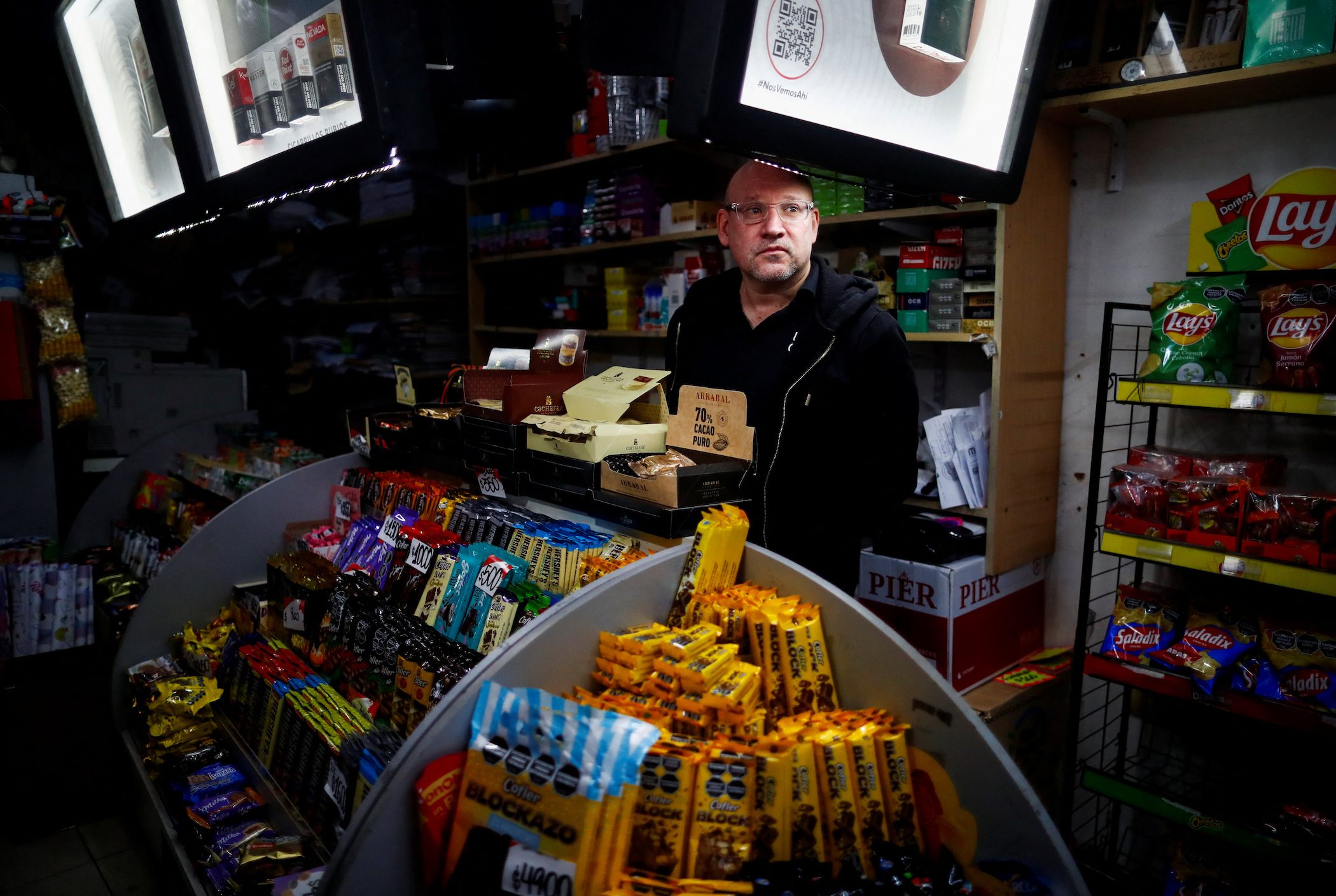SUMMARY
This is AI generated summarization, which may have errors. For context, always refer to the full article.

BUENOS AIRES, Argentina – When Ernesto Acuna, a convenience store owner in Buenos Aires, received the new price list this week from his supplier of the snacks, condiments, sodas, and ice creams he sells, he was shocked to find costs on some had risen 60% since late July.
The price list, updated after a primary election shock led to a sharp devaluation of the peso and interest rate hike on Monday, August 14, underscores the scale of Argentina’s challenge to avoid inflation, already at 113%, climbing faster.
“An ice cream for someone who comes to the store that was 1,000 pesos before, today is 2,000,” said Acuna, citing an increase of 35% and then 50% two weeks later. He added that owners like him of “kiosko” mini-stores didn’t know how to respond.
“We kiosko owners don’t know if we should increase prices each day, or by how much.”
The price lists from a major national supplier, analyzed by Reuters, showed an average hike of 18% between July 26 and August 15. Many were grouped around 25%, while some prices were left unchanged. Ice creams and desserts saw the steepest jumps, although there was variance among different products.

The analysis suggests that wholesalers are rapidly moving to raise prices after market volatility this week, which will feed into higher inflation in August as the country battles to avoid the hyperinflation it suffered in the late 1980s.
The price list offers a window into how these market shocks are passed on to small business owners, and eventually customers. Acuna said products that are imported, face scarcities, or are seasonal see the highest increases.
Businesses selling everything from cleaning products to car parts have rushed to adapt to the higher wholesale prices this week, suspending special offers and sometimes sales altogether.
Juan Pablo Spagnolo, 46, another convenience store owner, said after initial increases of 40% to 50% on Monday and Tuesday, August 15, compared to the previous month, by Wednesday, August 16, he had received lists with more “reasonable” increases, ranging from 15% to 25%.
“I’m telling you the reality of today, but the reality of next Monday is completely different,” Spagnolo said.

Even business owners with decades of experience, such as Acuna, are struggling to adapt to the triple-digit inflation, which analysts forecast will rise further in the lead-up to the October 22 general election, where radical libertarian economist Javier Milei has taken pole position.
Since March, business owners have received updated price lists from their suppliers twice a month, double the frequency of a year ago, said Acuna. Any drastic news, such as Monday’s devaluation, can lead to an additional list, he said. The price hikes are much steeper than past years, at least 10% per month, but with some products seeing much higher rises.
Owners then decide how to pass these price hikes on to customers, treading a fine line between maintaining profitability and ensuring a steady clientele, according to Acuna. Some implement the price hikes gradually so as not to scare away customers. Others decide to accept losses on some products in favor of keeping loyal customers.
“You keep trying to buy cheaper, look for a good price, run promotions,” Acuna said. “You keep trying to keep people coming to your kiosko, to choose you. There’s no other option.”
Maria Leguizamon, a 48-year-old apartment manager and frequent customer at Acuna’s store, said she will have to trim spending after this week’s price increases – buying less meat and fewer treats.
“Prices have gone through the roof, in every way,” Leguizamon said, adding that she didn’t blame the store owners and small businesses who were just trying to survive. “It’s madness what we’re living through.” – Rappler.com
Add a comment
How does this make you feel?





There are no comments yet. Add your comment to start the conversation.